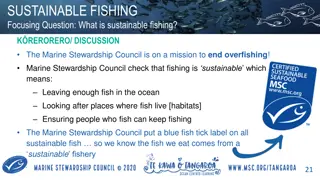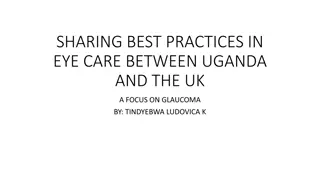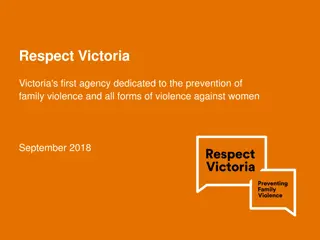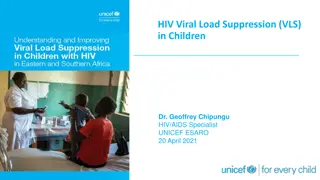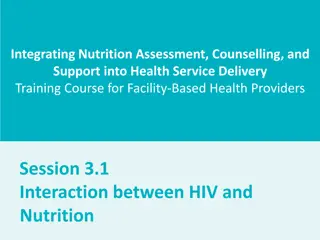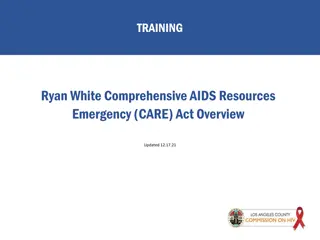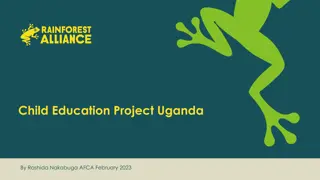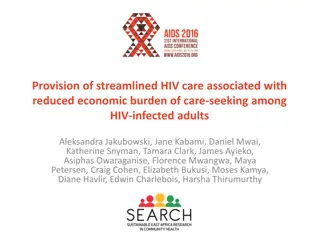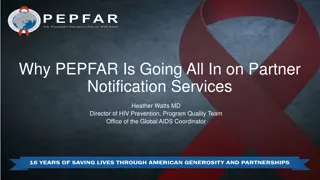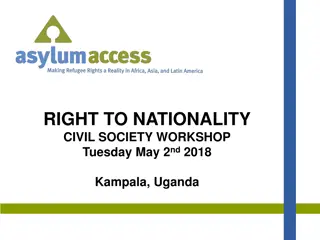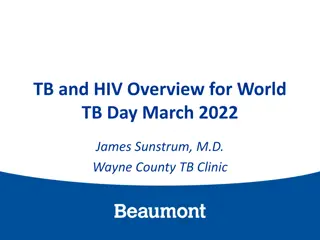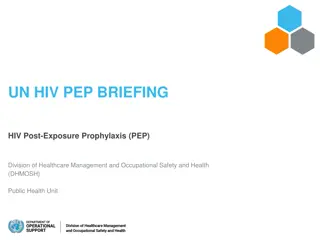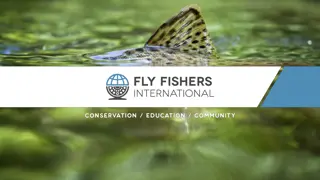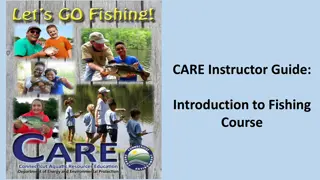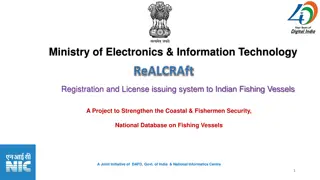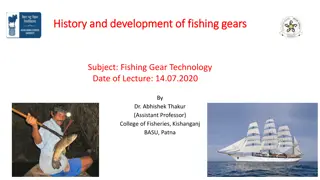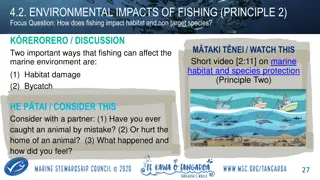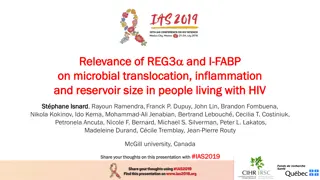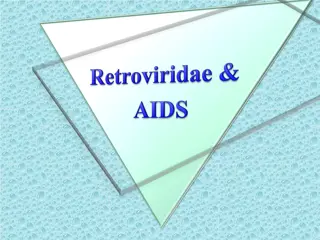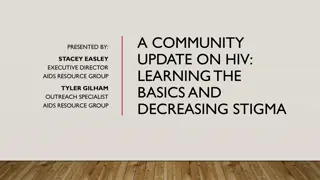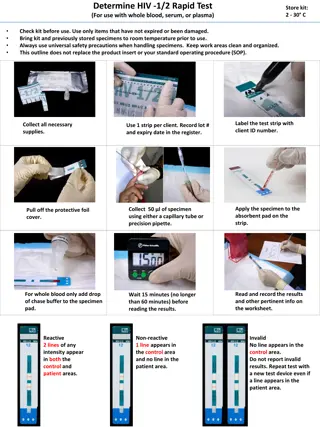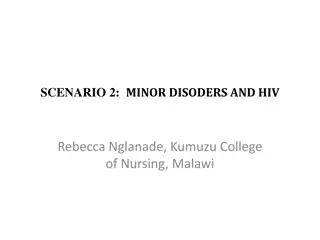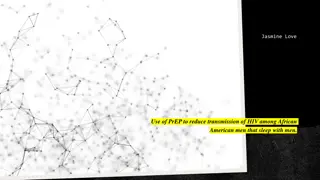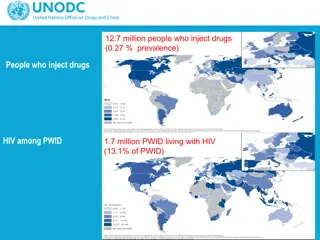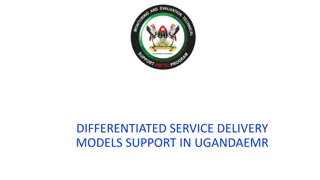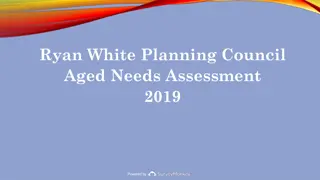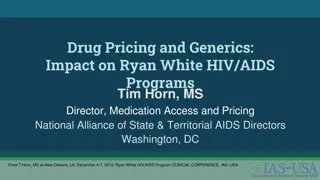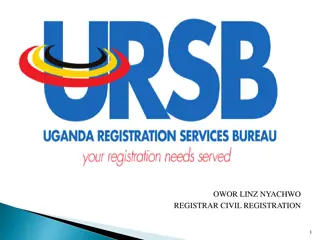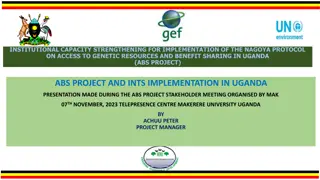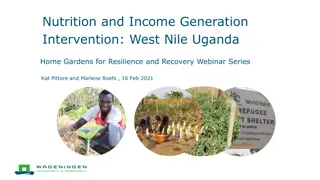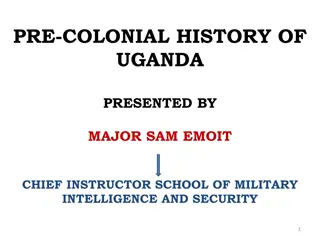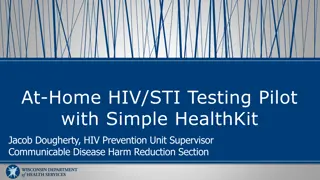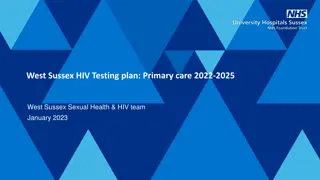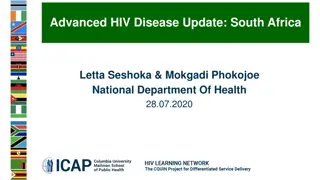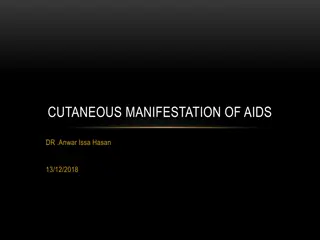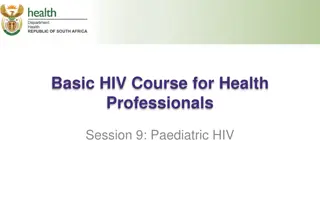Social Support and Access to HIV Services in Fishing Communities around Lake Victoria in Uganda
This exploratory study examines the social support available to fisherfolk in two fishing communities around Lake Victoria in Uganda regarding access to and use of HIV testing, treatment, and care. The study identifies various forms of support, including emotional, informational, and instrumental/material support, that play crucial roles in facilitating HIV services utilization among fisherfolk in the region.
Download Presentation

Please find below an Image/Link to download the presentation.
The content on the website is provided AS IS for your information and personal use only. It may not be sold, licensed, or shared on other websites without obtaining consent from the author. Download presentation by click this link. If you encounter any issues during the download, it is possible that the publisher has removed the file from their server.
E N D
Presentation Transcript
Social support and access to and use of HIV testing, treatment and care in two fishing communities around Lake Victoria in Uganda: an exploratory study By: Christopher Tumwine1, Dr. Stephen Bell2,1 & Prof. Peter Aggleton1 1 Centre for Social Research in Health, UNSW Sydney 2Kirby Institute, UNSW Sydney
Introduction Fisherfolk: All people living or working in communities where the main livelihood activity is fishing Fisherfolk are a key population in the HIV response in Uganda. HIV prevalence among fisherfolk is about 20-30% among adults.
Introduction Previous studies have largely focused on HIV transmission risks in these communities. Overall study objective was to examine socio-ecological factors influencing access to and use of HIV testing, treatment and care. o The forms of social support available to fisherfolk and the role these forms play in facilitating access to HIV testing, treatment and care
Methods Research Design Cross sectional qualitative study In-depth interviews o 42 HIV positive fisherfolk o 15 ART Health care providers Study sites Two clinics (one on the lake shore and another on an island in Lake Victoria)
Results All fisherfolk participants reported receiving support at some point from: family members, friends and health workers Prior to HIV diagnosis Support was largely in form of advice to fisherfolk who were ill, on: o what illness they could be dealing with o the remedies to use or which care providers to consult
Results After HIV diagnosis Emotional support to enable fisherfolk to come to terms with an HIV diagnosis I fainted, and I cried a lot when I was told I was HIV positive. I thought I was going to die and leave behind my children with no one to care for them. When I returned home a neighbour who was also HIV positive comforted me when she heard of my experience. She brought out her ARVs and showed them to me and told me she was also HIV positive and that I should not worry about anything because I was going to be fine. She was very healthy and beautiful and when I saw her, I started to overcome my worries (Norah, 37 years, fishmonger/farmer, island resident). Informational support providing advice on how best to live with HIV My sisters told me, if you discontinue taking HIV drugs, you will die; so, try as much as possible to take your ARVs always. And even up to now, they continue to encourage me to take my drugs (Annet, 37 years, unemployed, lakeshore resident).
Results Instrumental/material support to help fisherfolk access/use HIV treatment and care She would look after me very well. If I would tell her that the health worker has recommended that I eat nutritious food, she would buy everything that would have been recommended and make it available to me. I stayed at my mother s home for nine months and for all that period she was taking good care of me. And by the time I returned to my home, I had healed and was very okay (Judith, 43 years, farmer, island resident). Affiliative support, to provide fisherfolk with a novel sense of belonging It was only after I enrolled into HIV care that I got a number of friends who were also in HIV care that have been helpful to me. For instance, that man who has just passed, became my friend after I met him at the HIV clinic. When I was unable to work, he has been helpful to me. So, now I collaborate more closely with people who are HIV positive, who are able to help me when I am in problems (Fred, 35 years, fisherman, island resident)
Conclusions Participants received support at some point which facilitated their involvement in HIV care. Many participants also reported occasions when the support available to them was inadequate. HIV treatment programmes should actively encourage fisherfolk to involve friends/family to support their health care seeking


